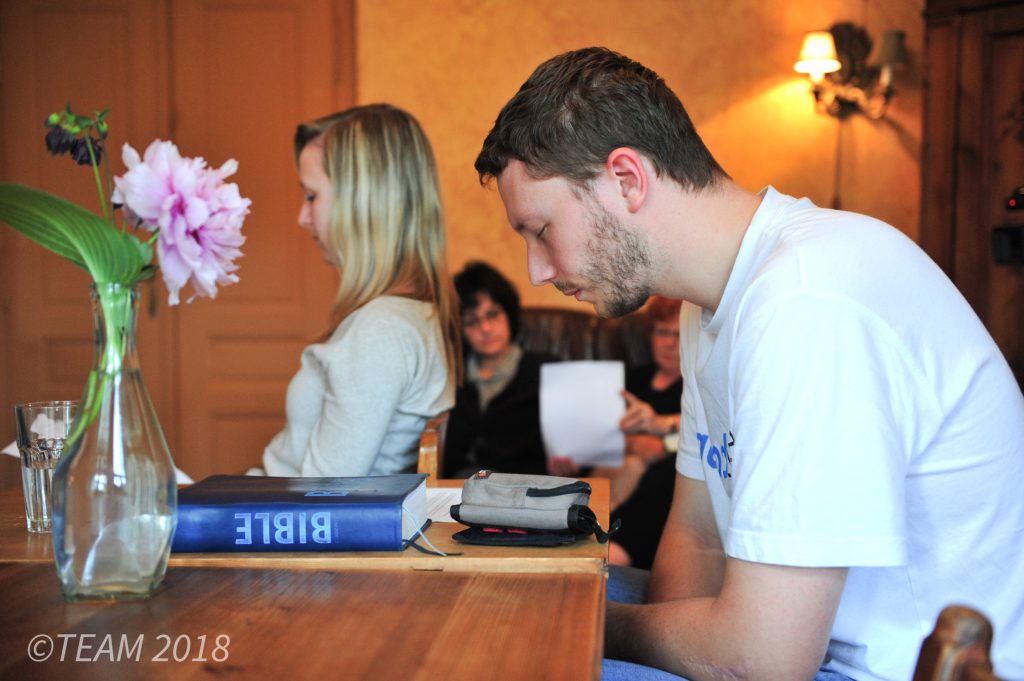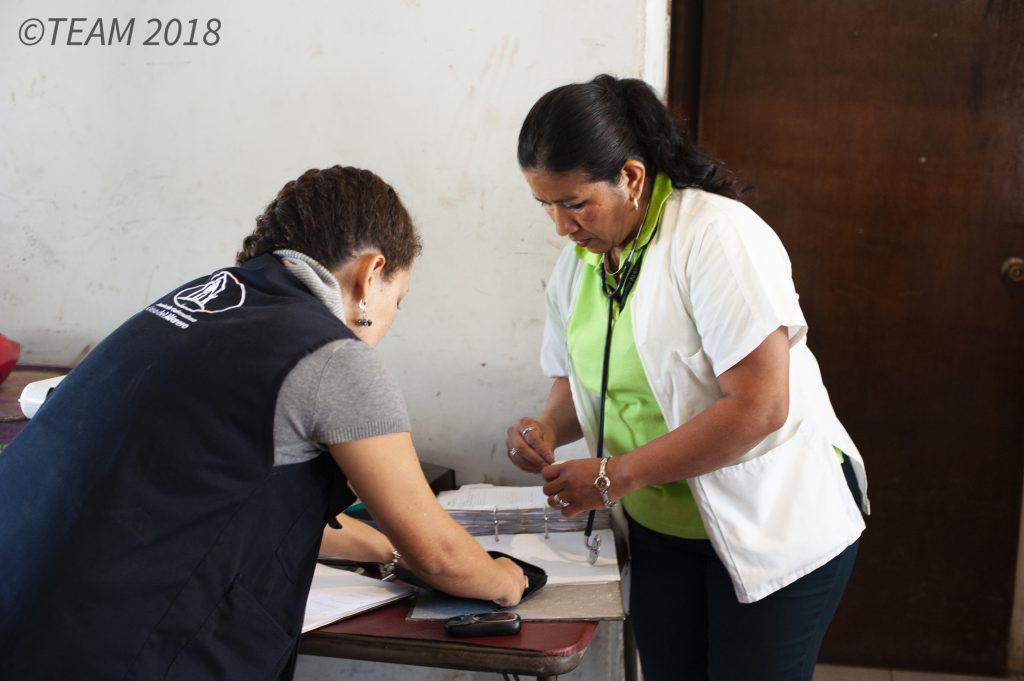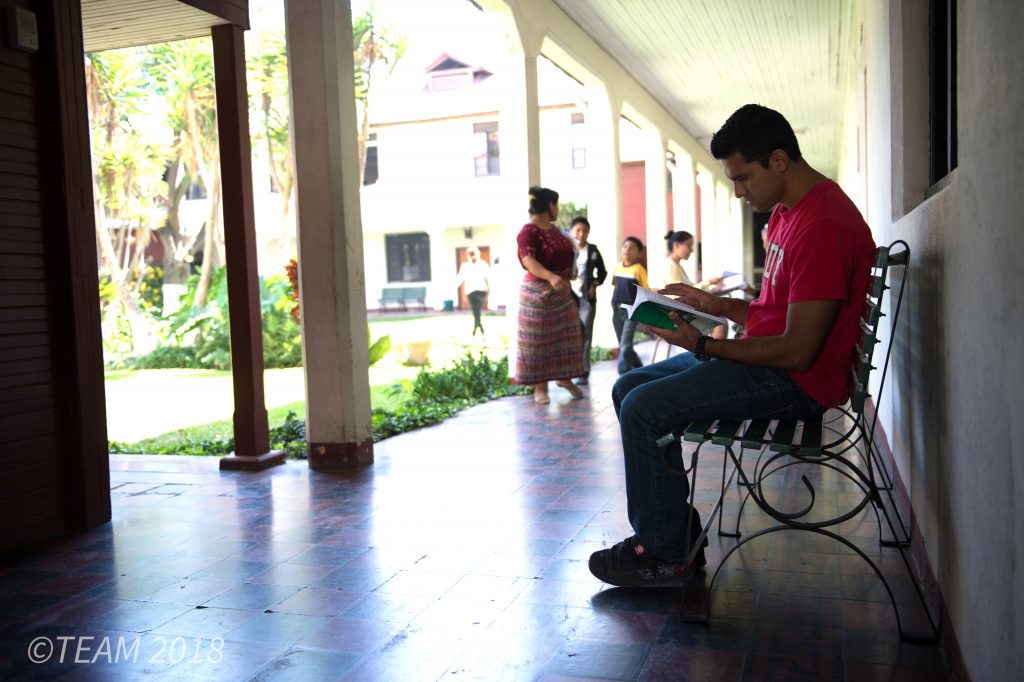
Becoming a Missionary
How Do I Become Qualified for Missions?
July 8, 2019
by Jordan

As a missions coach, one of the questions I receive is, “What do I need to do to be qualified for missions?”
Many people nail down the “who” and the “where” before they address the “what” in their missionary call. But as one missionary in the Middle East, Neena*, explains, “Our ‘call’ to another country does not exempt us from any further duties.”
When it comes to being effective cross-cultural witnesses, being strategically equipped is just as important has having a personal calling.
For some, that equipping means attending seminary to be the best church leader you can be. For others, it’s getting an MBA to effectively run an ethical business where the light of Christ shines bright. And for many people, it’s being intentionally discipled by church leaders while developing your spiritual gifts and character.
Today, I want to share a few pieces of wisdom from seasoned TEAM missionaries and staff about missionary qualifications.
A word of warning, though: Sometimes, our questions about qualifications come from a desire to know how quickly we can get overseas and achieve what we’ve been called to do.
If you genuinely want to be equipped to do the work God has for you, please keep reading! If you want to get overseas as fast as possible, take the time now to evaluate your motivations for going. A rush to get overseas is rarely a quality that makes for an effective missionary.
Continue to Grow Spiritually
One of the most important areas of equipping is spiritual readiness.
“A cross cultural worker will need, first of all, a strong personal walk with Jesus — the ability to find refreshment, guidance, growth and nourishment through personal time spent with Jesus, … as well as stimulating fellowship with other believers,” says Roger Luce, TEAM’s learning technology coordinator.

Every Christian needs to keep growing in Christ. But missionaries may have a harder time in places where there isn’t a strong Christian community to help them.
Many times, missionaries move to areas where they can’t rely on a thriving, local church to feed their souls. Because of this, missionaries need to know how to independently study Scripture and grow in their walks with Christ.
Missionaries also need the ability to interpret and apply Scripture in their host cultures.
TEAM missionary Becky Straub says missionaries need to look at their new home and ask, “How can I be Christ-like here?” Rather than making the local church look American, one needs to find culturally relevant ways to worship God.
This is an ongoing process. In our own cultures, we always have something to learn from the Bible. But this compounds in a foreign cultural context, where one is ever learning Scripture and ever learning a new culture.
Be Able to Meet the Need
In preparing for missions, many people focus on the “who” and “where,” but you also need to know your “what” and be excellent at it.
Beth Fussner, TEAM’s learning and development program director, says future missionaries “should plan to get the highest qualifications possible in your chosen field. [Work to] bring your very best to the global scene.”
As missionaries, we show our love for Christ and for the world by being as prepared for our vocational calling as possible.
To be clear, I’m not saying everyone needs a doctoral degree to become an effective missionary. I am saying that one needs to seek to learn and grow into the person God calls them to be before going overseas. Not only personally, but professionally as well.
Pray and seek wisdom from older, wiser believers to determine how you can become the most effective with the gifts and passions the Lord gave you.
“Whatever your expertise is in the U.S., expect it to be so much harder … when you go cross-cultural,” Becky Straub says.

Taking your work overseas will not make it any easier. In fact, it will probably make it harder. That’s why it’s important to have solid training for your vocation.
Every new job and season of life has its challenges — but add to that a new language, culture and even differing ethics, and the difficulty to adjust only increases. That’s why it’s important to know your field well and be able to apply your learning and experience in a new context.
If you’re called to be a nurse overseas, make sure you get the education you need to do that in your country of origin. If you’re called to be a pastor, seek all the qualifications you would to pastor a church in North America.
Recognize that You Never Stop Learning
Just because you’ve deboarded the plane, that doesn’t mean you’re done learning. Every missionary must be willing to keep learning their host culture’s needs and how to address those needs for God’s glory.
“[Approach] what God has called you to do with a learning and discovering heart that is never satisfied with what you may already know, but is ever hungry to learn more,” says Barry Winchell, a TEAM regional director.
This encompasses your jobs, your spiritual life and the culture you enter.
The ability to learn is a gift from the Lord — and a recognition that we will never be complete here on earth. To leverage the ability to learn as a selfless gain, to pour out what has been received, is exactly what’s at the heart of TEAM missions. And the drive to keep learning is a trait most missions agencies require in missionaries.

If we aren’t intentional about continuous learning, it won’t happen. That’s why we must always be on the look out for new things to learn.
This will not only aid you in spiritual and professional growth, but also in learning the language and the host culture of the people you go to serve.
It’s All About Character
Finally, we have to remember that professional and educational status, as well as theological advancements are useless if we aren’t seeking to become more like Christ. When missionaries consider whether new missionaries should join them, they primarily focus on the character of the applicant.
“When I think of our work in the coffee business, it matters less to me if a person has a four-year degree in business or hospitality than if they have simply the drive and desire to learn and the capacity to fail and still keep going,” says Catie*, a missionary in the Middle East.
As you pray about going overseas, remember that qualifications are important, but they are not the end all.
Bring your heart motivations before the Lord and invite church leaders to help you discern where you need to grow and how God has gifted you. Seek to become the most qualified you can be, so as you serve others in excellence, you’ll point people to the beauty of our excellent Lord — who you are ultimately there to serve.
Are you interested in becoming a missionary? A TEAM missions coach can help you explore the possibilities — and tell you what to expect! Click the button below to learn more!
Related articles


